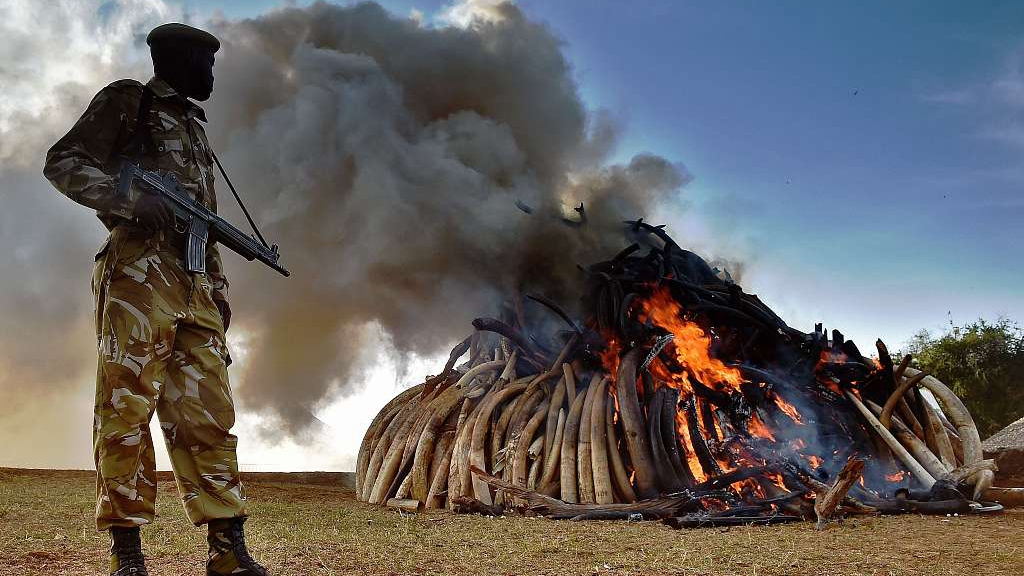

A Kenya Wildlife Services (KWS) officer stands near a burning pile of 15 tonnes of elephant ivory seized in Kenya at Nairobi National Park on March 3, 2015. /VCG Photo
Kenya launched a campaign to counter attempts by a section of African nations to legalize the ivory trade.
“We are worried – with the lobbying that is going on and opening the ivory trade – that poaching could be revived because there will be a demand and supply,” Najib Balala, the country’s cabinet secretary for Tourism and Wildlife told UN Environment on Monday.
Botswana along with Namibia, Zambia and Zimbabwe submitted a proposal to the Convention on International Trade in Endangered Species of Wild Fauna and Flora (CITES), a global wildlife regulator, seeking permission to resume ivory sales.
Home to the world’s largest population of elephants, Botswana plans to utilize money earned from the trade, to control rising human-animal conflict. The country also lifted a ban on elephant hunting in May.
Zimbabwe also argued that elephant numbers in the country have increased from 46,000 to 85,000, in the last three decades, causing severe conservation issues.
The ivory sales would help us raise around 600 million U.S. dollars to manage our forests efficiently, said Emerson Mnangagwa, President of Zimbabwe on the sidelines of Wildlife Economy Summit in Victoria Falls on June 27.
The pro-ivory group’s proposal would be discussed during the 18th Conference of Parties (COP18) at Geneva on August 17. Concerned over the massive poaching of African elephants, CITES banned international trade in ivory in 1989.
More than 25,000 African elephants are poached every year for ivory.
Kenya’s campaign launched last week aims at raising the protection status of elephants to curb poaching and attempts to legalize ivory trade. A part of effort focuses on raising public awareness at the country’s airport, once a major hub for the transportation of illegal wildlife products.
At Jomo Kenyatta International Airport, equipped with canine units trained to detect wildlife products in passenger baggage and cargo, a limited edition boarding passes with messages about ivory trade are being given to passengers.
The countries demand to ease the ivory trade comes at a time when a large number of states have banned domestic ivory trade. The UK, China and it’s regions Hong Kong and Taiwan have already phased out the local ivory market.
The European Union, Australia, Singapore and many other countries have initiated public consultations to impose similar bans.

Copyright © 2018 CGTN. Beijing ICP prepared NO.16065310-3
Copyright © 2018 CGTN. Beijing ICP prepared NO.16065310-3